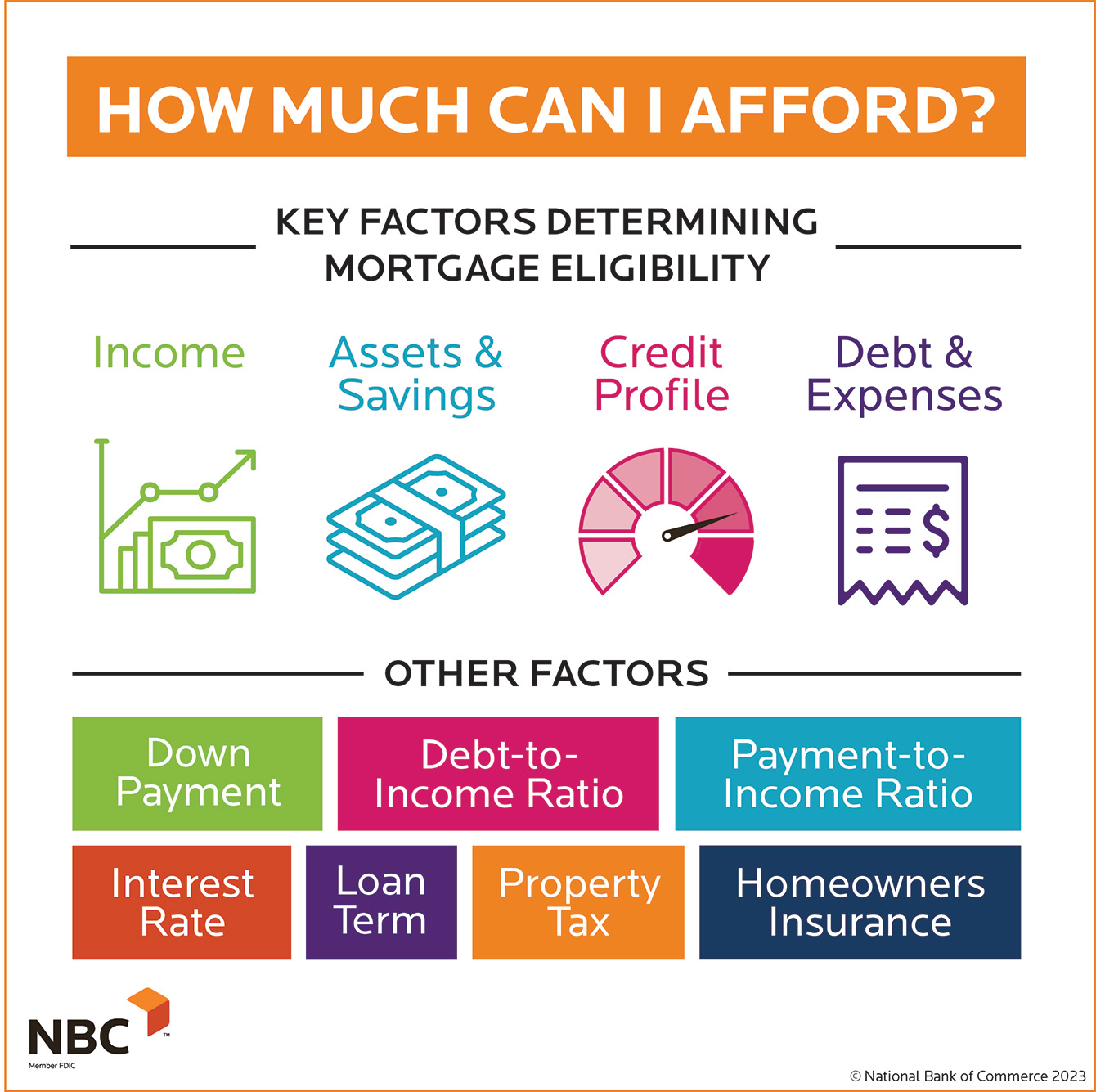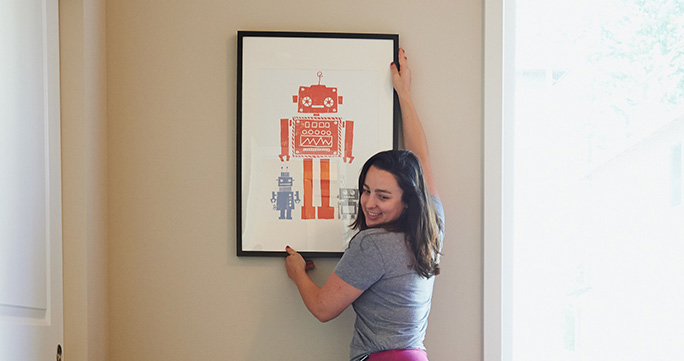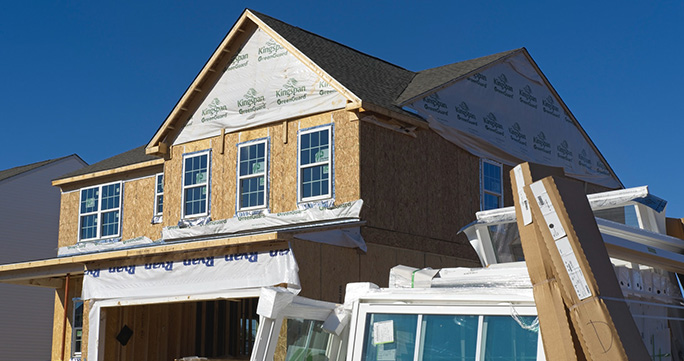Mortgage Qualifications
Learn how to determine your mortgage affordability and eligibility. Your dream home may be closer than you think!

When you’re buying a home, it’s important to know how much mortgage you can afford. That way, you can focus on homes in your price range and avoid getting yourself into too much debt. In this article, I’ll walk you through the basics of mortgage affordability and how to qualify. So read on—the perfect home may be within your financial reach!
Calculating What You Can Afford
To begin, our Mortgage Qualification Calculator can help you determine how much house you can afford.
Similarly, the Mortgage Payment Calculator will compute your monthly payment based on some of the variables I’ll clarify in this article.
When calculating your budget for your monthly mortgage payment, consider the following.
Income vs. Debt
Most lenders base their mortgage qualification on your total monthly expenses divided by your monthly gross income. This is called debt-to-income ratio (DTI).
These monthly expenses include property taxes, homeowners’ insurance, and loan and credit card payments on your credit report.There is also a payment-to-income ratio that most lenders use as well. This is your total mortgage payment (principle, interest, property taxes, and insurance—or PITI) divided by your income.
When purchasing a home, your debt-to-income ratio should be less than 45%, and your payment-to-income ratio should be less than 36%.
However, borrowers with higher income and/or credit scores can sometimes qualify for a mortgage with higher DTI and PITI ratios.
Down Payment
Most loans require a down payment of some sort. The size of your down payment can impact the amount you qualify for and the mortgage rate lenders will give you. Generally, the more you are able to put down, the higher the amount and/or the lower your payments.
In most cases, making a down payment of 20% can help you avoid the need for Private Mortgage Insurance (PMI) also.
On the other hand, NBC has products that require as little as 3% for a down payment and there are community down payment assistance programs that help first-time home buyers with down payments and closing costs. Additionally, VA loans for veterans of the Armed Forces usually don’t require a down payment at all. Check with your lender on this.
Interest Rates
Interest rates can greatly impact your monthly mortgage payments and what you’ll pay over the life of your loan.
Comparing interest rates with different financial institutions can be tricky. Rates are based on credit, down payment amount, loan-to-value, type of mortgage, etc. So consult with your lender about best options and most accurate rates and terms.
Term Options
Standard lending practices defer to the 30-year, fixed-rate mortgage as the go-to for most borrowers buying a home because it allows the borrower to spread loan payments out over 30 years.
Doing so helps keep their monthly payment lower, despite paying more in total interest for the loan.
With a 15-year mortgage, however, borrowers can pay off their loan in half the time—if they’re able and willing to increase their monthly loan payment. Typically, 15-year terms have a lower interest rate.
The primary difference between qualifying for a 15-year versus a 30-year mortgage is that you’ll need a higher income and lower debt-to-income ratio to obtain 15-year financing because the monthly payments are higher.
Other options include 10-year, 20-year and 25-year terms.

Key Factors for Qualifying
Credit
Your credit score will play a large role in determining the interest rate on your loan and the program you qualify for.
Lenders typically pull a credit report from three different reporting institutions: Experian, TransUnion, and Equifax. They look at all three scores from these institutions and go with the median score to use in the decision-making process. The scores can range from 300-850 points.
These scores are an indication to the lender of how responsible a consumer has been with their previous or current creditors. The higher the score the better the credit profile. Generally, scores over 720 are considered good and those below 600 are not considered good. Consumers usually get more favorable loan terms with better credit scores because they pose less of a risk to the financial institution lending them the funds.
Income
Income is the next component lenders look at when determining if a buyer is qualified. Lenders are going to look at job stability. They are looking to see how long you have been in this same line of work and if there are any fluctuations in your income.
Lenders can consider bonuses and overtime income if consumers can provide a history of those earnings. This is done to establish gross monthly income for all borrowers.
Income is then used to compare current debts with creditors as well as the new proposed house payment. In other words, how much income is coming in vs. how much is going out?
This establishes the debt-to-income (DTI) ratio which allows lenders to see what consumers can afford. Most lenders do not want to see more than 45% of consumer’s income going out to pay debt. This would include any new home payment.
Assets
Assets are the last piece of the qualification process. Mortgage lenders will look at your income and assets to determine the total loan amount you can afford to pay back.
Put simply, how much money does the buyer have that can be used to buy a property/home?
This is the money borrowers use to fulfill any down payment requirements or closing costs. It can also be used as a reserve for future payments. These funds can be from the buyers or gifts from family members.
Choosing the Right Mortgage Option
As you begin to put your home-buying plan into action, be sure to speak with an NBC banker to determine how much mortgage you can afford, and get pre-approved so your offer is attractive to sellers.
We are always available for an in-person meeting, phone call, or email. Feel free to schedule an appointment using the Let’s Talk feature on our website.
To find the best mortgage for your prospective home, it helps to understand the types of loans you’re able to pursue, as well as the factors that can influence the types of mortgages you’ll qualify for.
Luckily, we cover this in the next module.
Other Articles in this Guide

What is a Mortgage?
Learn about the components of a mortgage, who is involved, and gain clarity on this major milestone in your life.

Types of Mortgages
The most common mortgage types explained. Explore and compare to find the option that best suits your needs.

Mortgage Loan Process
Learn how getting a mortgage loan works and take the first step to financing for your dream home in as little as just 30 days.
